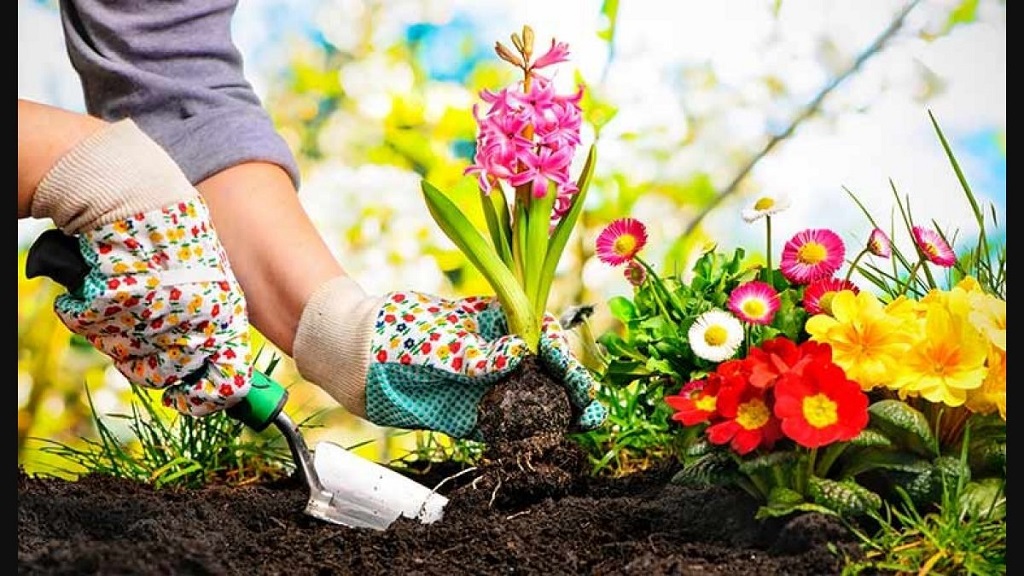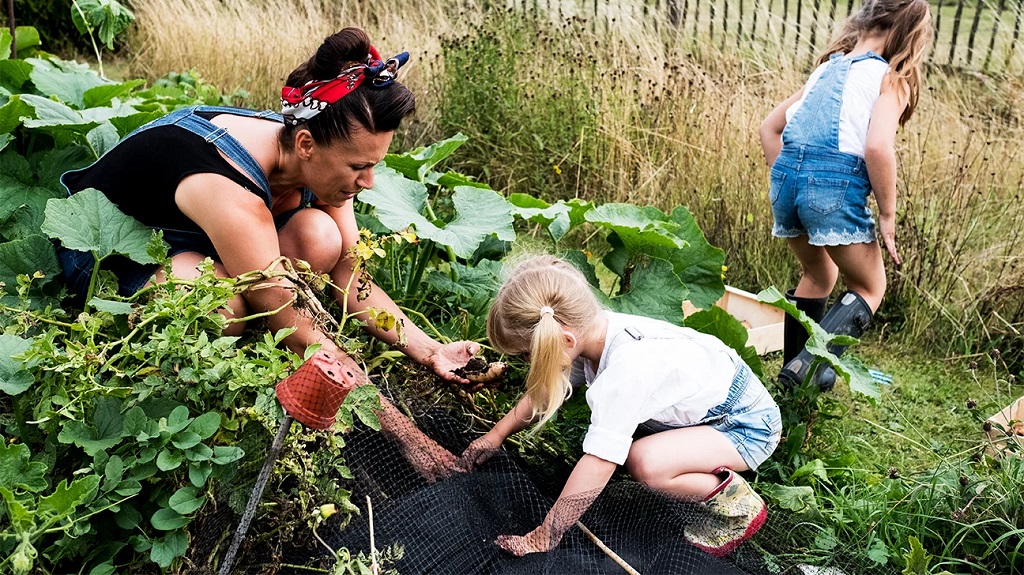In today’s fast-paced world, disconnection from nature and the pressures of daily life can take a toll on our mental well-being. Fortunately, there’s a simple, rewarding activity that can offer a powerful antidote: gardening. Immersing yourself in the natural world by nurturing plants isn’t just about cultivating beautiful flowers or delicious vegetables; it’s about cultivating a sense of calm, purpose, and connection, all of which contribute to improved mental health. This guide explores the multifaceted ways gardening can positively impact your mental and emotional well-being.
Stress Reduction: A Sanctuary in the Soil
One of the most well-documented benefits of gardening is its ability to reduce stress. Here’s how spending time in your garden can create a sense of calm:
-
Mindfulness in Nature: Gardening provides a natural opportunity to practice mindfulness. The repetitive motions of planting, weeding, and caring for your plants encourage you to be present in the moment, focusing on the sights, sounds, and smells of nature. This focus on the present helps to quiet the mind and reduce rumination on worries.
-
Physical Activity with a Purpose: Gardening is a gentle form of physical activity that gets you outdoors and moves your body. Even light tasks like weeding or watering can elevate your mood and release endorphins, the body’s natural feel-good chemicals. Physical activity has also been shown to be effective in reducing stress hormones like cortisol.
-
A Sense of Control: Nurturing plants and witnessing their growth provides a sense of accomplishment and control over your environment. This feeling of control can be particularly beneficial for those struggling with anxiety or feelings of helplessness.
Boosting Mood and Happiness: The Sunshine Vitamin
Gardening isn’t just about stress reduction; it can also actively elevate your mood and increase feelings of happiness. Here’s how:
-
Exposure to Sunlight: Spending time outdoors in your garden exposes you to sunlight, which is crucial for vitamin D production. Vitamin D deficiency has been linked to depression, so getting a healthy dose of sunshine can naturally improve your mood.
-
A Sense of Achievement: Witnessing the fruits (or vegetables!) of your labor can be incredibly rewarding. Whether it’s harvesting a bounty of homegrown produce or watching a beautiful flower bloom, these successes provide a sense of accomplishment that can boost your mood and self-esteem.
-
Connection with Nature: Studies suggest that connecting with nature can have a significant positive impact on our mental well-being. Being surrounded by greenery and life in your garden can create a sense of peace and reduce feelings of isolation.
Building Confidence and Self-Esteem: From Seed to Success
The process of gardening can nurture your confidence and self-esteem in several ways:
-
Learning New Skills: Gardening is a continual learning process. Whether you’re mastering new planting techniques, troubleshooting pest problems, or experimenting with different plant varieties, you’re constantly acquiring new skills and knowledge. This sense of mastery can significantly boost your confidence.
-
Overcoming Challenges: Gardening is not without its challenges. Dealing with pests, diseases, or unexpected weather events can be frustrating. However, overcoming these challenges and witnessing your plants thrive despite setbacks can foster resilience and a sense of accomplishment.
-
Taking Care of Something: Nurturing plants provides a sense of purpose and responsibility. Taking care of living things can be incredibly rewarding and build confidence in your ability to care for and contribute to something larger than yourself.
Social Connection: A Community that Blooms
Gardening doesn’t have to be a solitary pursuit. Here’s how it can foster social connection:
-
Community Gardens: Community gardens offer a unique opportunity to connect with like-minded individuals who share your passion for gardening. You can share tips, swap seeds, and learn from each other’s experiences.
-
Gardening with Family and Friends: Gardening can be a fun activity to share with loved ones. Spend time together planting seeds, tending to your garden, and enjoying the fruits (or vegetables!) of your labor.
-
Online Gardening Communities: The internet provides access to a wealth of online gardening communities. These forums and social media groups connect you with gardeners from all over the world, allowing you to share experiences, ask questions, and find encouragement.
Gardening for Everyone: Accessible Strategies for Mental Well-being
The beauty of gardening is its accessibility. Here are some tips to get started and experience the mental health benefits:
-
Start Small: Don’t feel overwhelmed by the idea of a large, elaborate garden. Begin with a small, manageable space like a container garden on your balcony or a raised bed in a sunny corner of your yard.
- Choose Plants You Love: Select plants that appeal to you visually and functionally. Consider your climate, available sunlight, and desired outcome (flowers, vegetables, herbs).
-
Focus on the Process: Enjoy the journey, not just the destination. Savor the sensory experience of digging in the soil, feeling the sun on your skin, and witnessing the growth of your plants.
-
Celebrate Your Successes: Take time to appreciate your accomplishments, no matter how small. Did you successfully germinate seeds? Watch a flower bloom? Celebrate these victories!
-
Seek Help When Needed: Don’t be afraid to ask for help from experienced gardeners at your local nursery or online communities. Learning from others can prevent frustration and ensure success.
-
Find a Gardening Style that Suits You: There’s no one-size-fits-all approach to gardening. Explore different methods like container gardening, raised beds, or traditional in-ground plots. Find what works best for your space, lifestyle, and preferences.
Related: How to Clean Garden Tools
Conclusion: Reap the Rewards of a Flourishing Garden and Mind
Gardening offers a powerful and accessible way to improve your mental health and well-being. From stress reduction and mood enhancement to building confidence and fostering social connection, the benefits are vast. So, get your hands dirty, embrace the process, and witness the positive impact gardening can have on your mind, body, and spirit. With a little effort, you can cultivate a thriving garden and a more flourishing you.





